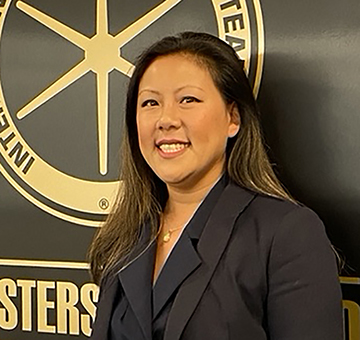Projected worker shortage inspires Teamster action for good jobs
January 3, 2020Every day, Teamsters business agents throughout the country get requests from employers for new workers. Across our core industries, from trucking to warehousing to busing, workers are in high demand. This is especially true for workers who have commercial drivers licenses.
Economists predict a major shortage of truck drivers in the next decade. Some estimate that 160,000 driving jobs will go unfilled. Much of the blame goes on the trucking industry and the shippers themselves. Before trucking was deregulated in 1980, the Teamsters represented 91% of the truck drivers in this country. Driving a truck under the National Master Freight Agreement was the highest paying blue-collar job in the United States. In 1980, the average annual salary of a Teamster truck driver would equal more than $110,000 today. Sadly, non-union truck drivers average about $40,000 a year now and work 55-65 hours a week with no retirement and unaffordable health care. No wonder there is a shortage.
On top of that, fly-by-night truck driving schools exist all over the country. They offer minimal training and no job placement. Or they send drivers to be so-called “independent contractors” in construction, at our ports, and over-the-road. These drivers are forced to invest in equipment they cannot afford and they get stuck holding the bag when the truck breaks down or they get sick or injured on the job. Their employers undermine Teamster jobs by skirting payroll taxes, worker’s compensation, unemployment, living wages, benefits, and more.
The Teamsters and other labor unions in California are doing something about it. We understand the problem. We know we need to make these good jobs again. That takes action.
Leading the way for good jobs and training
Last year, we passed AB 5, legislation that makes it much harder for companies to misclassify workers as independent contractors. The trucking industry continues to attack that legislation. We are helping the State of California defend the law against two lawsuits. We took over the Capitol several times last year and need to get ready to do it again. In the meantime, jobs we lost to misclassification in package delivery, freight, construction, and bakeries are coming back to the Teamsters. The law is working.
At our urging, Governor Gavin Newsom established a California Future of Work Commission to look at what kinds of jobs will be created in the decades to come and what we can do to make sure these are good jobs. I was honored to be one of 21 appointees to the Commission.
At our second Commission meeting, we heard from Steve Viscelli, a sociology professor from the University of Pennsylvania. Viscelli spoke to the Joint Council 7 seminar in 2017, where he presented findings from his groundbreaking report on the future of trucking-—http://driverlessreport.org. All this is to say that Joint Council 7 is a leader in this fight.
At the Future of Work Commission, we secured commitments from the State of California to invest in good jobs. Every year, California hands out hundreds of millions of dollars to employers for job creation. Our tax dollars go for job training, tax credits, grants to buy cleaner equipment, and more. That money should go to employers that create jobs with living wages and good benefits, and it’s time for California to put its money where its mouth is.
Teamster apprenticeship program gets created
Again, Joint Council 7 is leading the way. In 2017, the California Workforce Development Board awarded us $500,000 to develop a Transportation, Distribution, and Logistics Apprenticeship Program. We partnered with the West Oakland Jobs Resource Center, a non-profit we helped establish that serves workers from low-income communities of color like West Oakland.
Local 853 Business Agent and Recording Secretary Stu Helfer has long pushed for a Northern California Teamsters state-certified apprenticeship program. As a trustee of the Northern California Teamsters Apprenticeship Training (NCTAT), Helfer coordinated employer outreach with NCTAT’s Shelley Hinkle and our Bay Area locals.
In a major milestone, the program just received final approval from the California Apprenticeship Council. A few classes have already been completed and new ones are being developed. Courses include (or will include): OSHA 10 for both construction and general industry, CPR, Air Brakes, Commercial Driving, CDL upgrades, and more. Courses are being held in Alameda, but the program aims to expand throughout the Joint Council.
This year will be busy for Joint Council 7. We will work hard to elect more candidates that support our jobs in the March and November elections. We will defend AB5 from attacks and enforce it to protect our jobs. And we will organize new workers.

